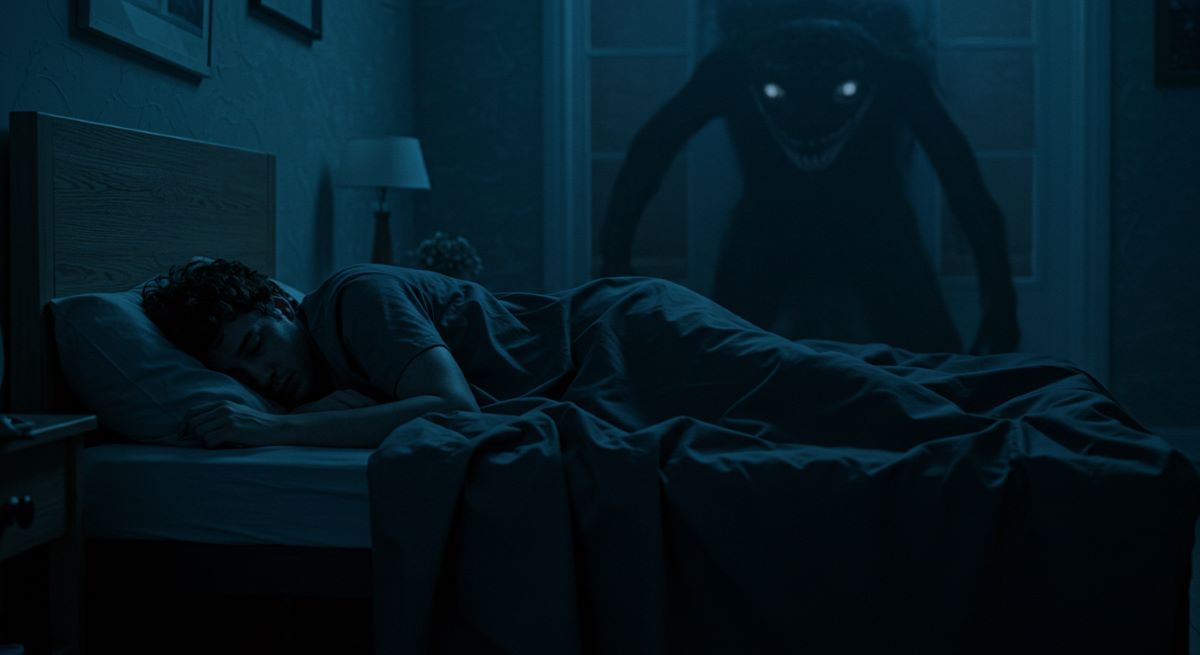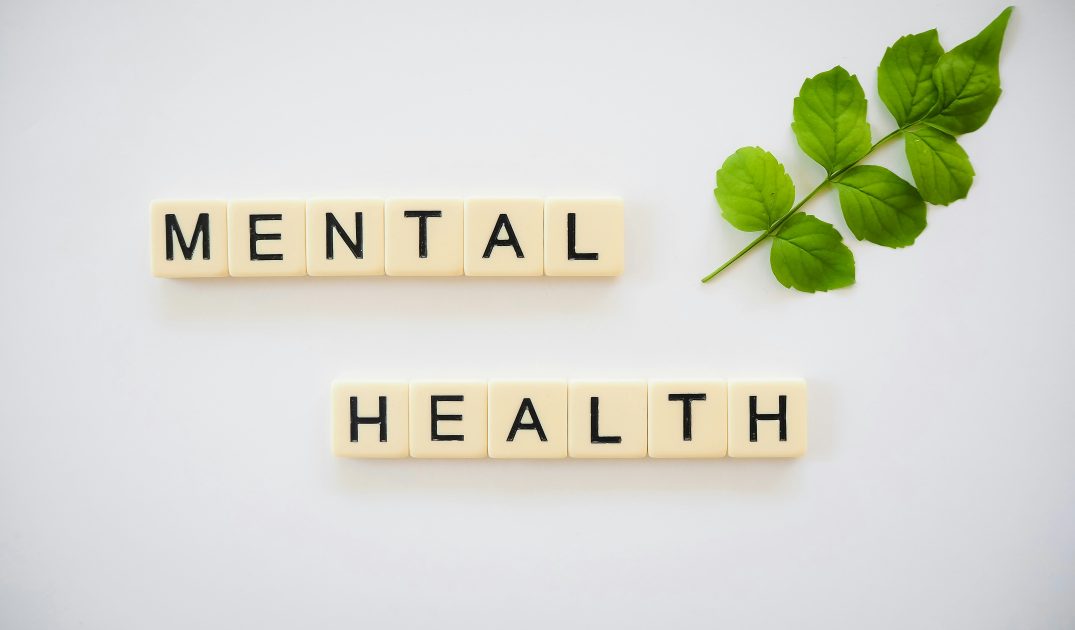Have you ever woken up in the middle of the night, heart pounding, after dreaming about monsters chasing or trying to kill you? It’s the kind of nightmare that sticks with you, your chest tightens, you’re sweating, and your brain just won’t let it go. We’ve all had one of those nights where we wake up and think, What was that even about?
These dreams about monsters trying to kill you can feel disturbingly real. They leave you wondering if there’s a hidden message, maybe a warning, a reflection of stress, or even an unresolved fear coming to the surface.
This guide discusses what these nightmares might actually mean. We’ll explore them through psychology, symbolism, and cultural lenses, plus what science says about them. More importantly, you’ll learn practical ways to deal with them, so you can finally understand your nightmares and get back to peaceful sleep.
Why Do People Dream About Monsters?
Dreams act as mirrors of the subconscious mind. Monsters in dreams are rarely random. They often represent fear, inner conflict, stress, or unprocessed emotions.
Psychologists explain that when the brain struggles with something too overwhelming for direct awareness, it creates symbolic images. Monsters become the stand-ins for your biggest fears.
Common triggers of monster dreams
- Anxiety disorders: People with high anxiety are more likely to experience nightmares involving monsters, chases, or threats.
- Stress from daily life: Overwork, money problems, or family conflict may spark monster-related dreams.
- Childhood influences: Children who grew up with scary stories, religious fear, or horror movies often carry these images into adulthood.
- Recent exposure: Reading violent news, watching horror films, or gaming late at night can directly influence dream content.
Dreams are like emotional “garbage collectors.” What you fear in real life gets recycled into dream images.

Book About Dreams
Dreams:
The Magic of the Night
By Kenneth K. Gray
This book is perfect for anyone seeking to understand the messages and meanings hidden in their dream life. It offers a clear framework for interpreting dreams with real examples and thoughtful insights, making each chapter both personal and enlightening.
- Based on personal dream journals
- Step-by-step interpretations
- Perfect for dream seekers & learners
Symbolism of Monsters in Dreams
Monsters symbolize different fears depending on their appearance and behavior in the dream.
- Size: A huge monster suggests an overwhelming problem you feel unable to handle.
- Facelessness: A shadowy or undefined monster often means fear of the unknown.
- Strength: A strong monster may symbolize helplessness in the face of authority, illness, or conflict.
- The chase: Being chased reflects avoidance – running from something in waking life.
- The kill: Killing a monster can symbolize victory, but being killed may show helplessness or loss of control.
Carl Jung described monsters as symbols of the “shadow self” – the hidden or repressed parts of your mind. When you dream of a monster, you may be confronting something about yourself you fear to admit.
Being Killed vs Fighting Back
The difference between being killed and fighting back in dreams is critical.
- Being killed by the monster suggests defeat, trauma, or extreme stress. It may represent a situation in real life where you feel powerless.
- Fighting the monster: Shows your mind’s attempt to build courage. Even if you lose in the dream, the act of fighting signals resilience.
- Killing the monster: Represents breakthrough and progress. It may mean you’re overcoming a long-standing fear or problem.
This mirrors real life: people who face their fears often grow stronger, while avoidance keeps the fear alive.
Why Monster Dreams Feel So Real
Monster dreams often feel vivid because they activate the amygdala, the brain’s fear center. During REM sleep, your body is paralyzed while your brain processes emotional memory. This creates a perfect storm: your brain feels the fear as if it were real, but your body cannot move.
This explains why people wake up sweating, paralyzed, or screaming after monster nightmares.
A 2018 study in Sleep Medicine Reviews found that threatening creatures rank among the most common nightmare themes worldwide, alongside falling, being chased, and death.
Cultural Views on Monster Dreams
Monster dreams have many cultural interpretations. While psychology focuses on stress and fear, folklore and tradition give other meanings.
- Western psychology: Monsters equal subconscious fear, trauma, or shadow self.
- Japanese culture: Oni (demons) represent guilt or punishment for breaking rules.
- African traditions: Nightmares with monsters may signal disharmony with the community or ancestors.
- Indigenous cultures: Monsters in dreams can act as warnings or guides, depending on the dream context.
- Christian interpretation: Monsters may be seen as symbols of temptation, sin, or spiritual attack.
This shows the dream meaning shifts depending on the belief system and culture.
Recurring Monster Dreams
If you see monsters in dreams repeatedly, your subconscious may be demanding attention.
What recurring monster dreams may signal
- Unresolved trauma: Abuse, violence, or painful memories that remain unhealed.
- Ongoing stress cycle: A recurring situation in daily life that causes ongoing fear.
- Sleep disorders: Sleep apnea, restless legs, or PTSD can trigger frequent nightmares.
- Suppressed emotions: Repeated monster dreams may point to anger, shame, or guilt that you ignore.
Recording these dreams in a dream journal helps spot patterns. Over time, you may see connections to daily struggles.
Psychological and Biological Causes
Monster dreams are not just symbolic – they also have biological explanations.
- Sleep paralysis: People often hallucinate shadowy creatures while paralyzed in bed.
- Medications: Antidepressants, beta-blockers, and alcohol can increase vivid nightmares.
- Hormonal changes: Pregnancy, puberty, or high cortisol levels can make dreams more intense.
- Evolutionary theory: Humans evolved to fear predators. Dreaming of monsters may be the brain’s way of practicing survival.
These biological links explain why monster dreams can happen even if you’re not under heavy stress.
Coping Strategies for Monster Dreams
Monster dreams can be reduced or transformed. Here are practical steps:
- Journaling: Write the dream immediately after waking. Look for recurring details.
- Relaxation before sleep: Breathing exercises, meditation, or gentle yoga help calm the nervous system.
- Avoid triggers: Limit horror films, violent games, or distressing news late at night.
- Improve sleep hygiene: Sleep in a dark, cool, quiet room. Avoid caffeine before bed.
- Seek therapy: Cognitive Behavioral Therapy for Nightmares (CBT-N) is effective.
- Try lucid dreaming: Training yourself to recognize dreams gives you the power to change outcomes, such as turning to face the monster instead of running.
- Spiritual or cultural practices: Some find peace through prayer, rituals, or traditional dream interpretation.
Taking these steps gives you more control and reduces the intensity of nightmares.
Unique Angles to Consider
Most dream sites stick to general symbolism. To provide a deeper understanding, ask these questions:
- Could the monster represent a real-life abuser or toxic boss?
- Do children dream of monsters differently from adults?
- Can facing a monster in a dream increase confidence in waking life?
- Do monsters always mean fear, or could they mean hidden strength?
- Can monster dreams ever predict illness or danger?
Exploring these adds richness to dream interpretation and connects better with readers.
Statistics About Nightmares
Nightmare research shows how common monster dreams are:
- 50–85% of adults report at least one nightmare each year.
- 4–8% of adults experience nightmares once a week or more.
- Children aged 6–10 have the highest rates of monster dreams.
- Women report nightmares slightly more than men.
- Nightmares often peak during grief, trauma, or major life changes.
These statistics show monster dreams are normal but can also signal deeper struggles.
FAQs About Dreams of Monsters
1. Why do I dream of monsters killing me?
These dreams reflect unresolved fears, trauma, or ongoing stress. They may also stem from recent exposure to violent or frightening media.
2. Are monster dreams warnings?
Usually, they are emotional signals. In some cultures, they are spiritual warnings or guidance.
3. Can recurring monster dreams harm health?
Yes. Frequent nightmares disturb sleep, lower mood, and increase anxiety. Seek help if they disrupt daily life.
4. How do I stop dreaming of monsters?
Reduce stress, practice better sleep habits, write in a dream journal, and consider therapy or lucid dreaming training.
5. Do children and adults have monster dreams for the same reason?
Children dream of monsters due to fear, imagination, or bedtime anxiety. Adults’ monster dreams are usually linked to stress, trauma, or subconscious conflict.
Call to Action: Start Facing the Monster
Dreams about monsters trying to kill you are not random. They are powerful signals of inner conflict, fear, and the need for change. By learning from them, you gain insight into your life.
Take the first step today:
- Keep a dream journal and record your nightmares.
- Improve your sleep routine with calming rituals.
- Seek professional help if nightmares interfere with daily life.
- Explore lucid dreaming to take control of your dreams.
Facing the monster in your dream may empower you to face challenges in waking life. Your nightmare can become a pathway to healing and growth.
Sources
- Sleep Medicine Reviews – The prevalence and function of nightmares
- American Academy of Sleep Medicine – Nightmares: Causes and Treatments
- Carl Jung – The Archetypes and the Collective Unconscious
- International Association for the Study of Dreams – Dream Research Resources
- National Sleep Foundation – Nightmares and Night Terrors
- Nielsen, T., & Levin, R. (2007). Nightmares: A new neurocognitive model. Sleep Medicine Reviews.




